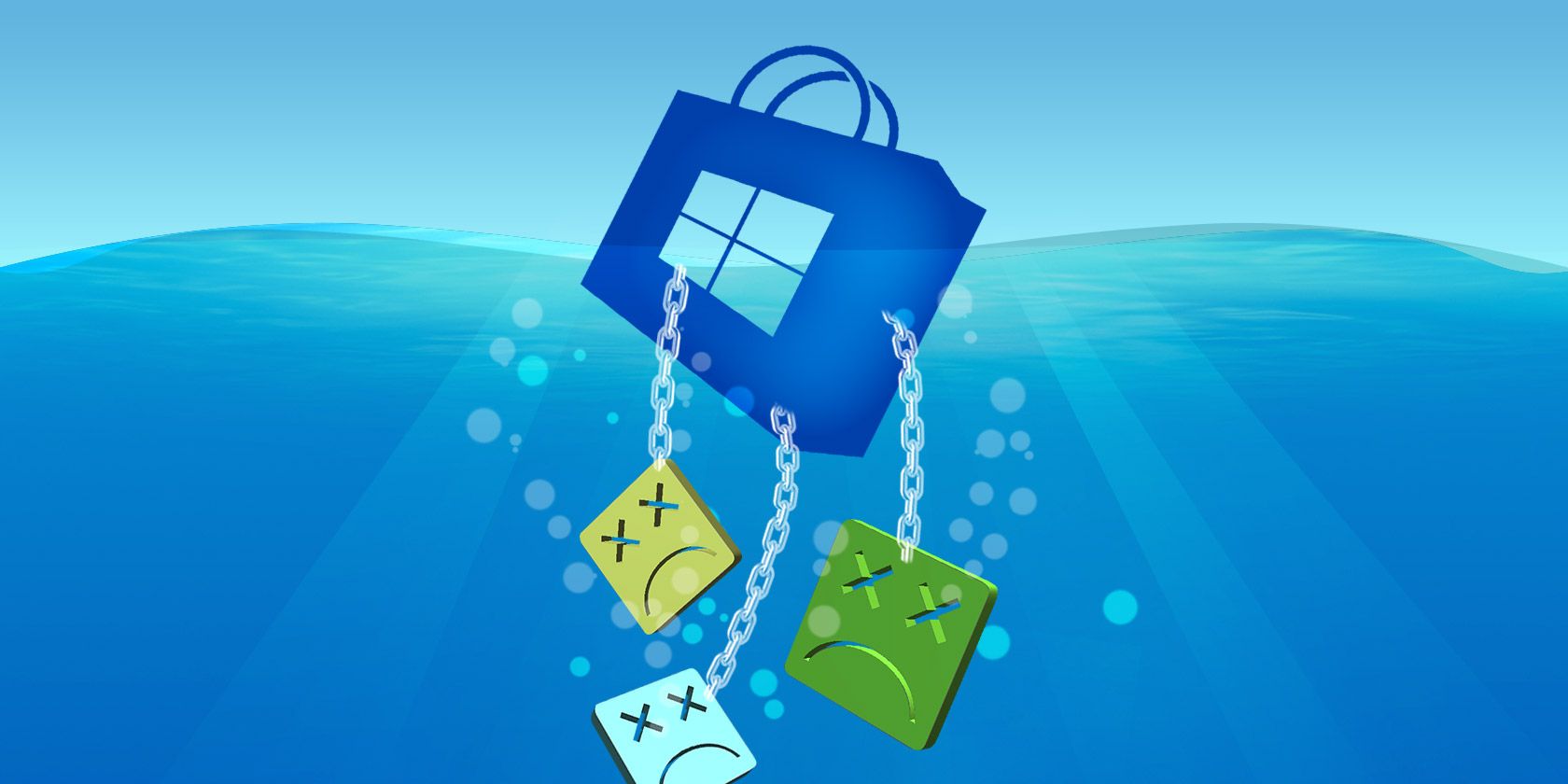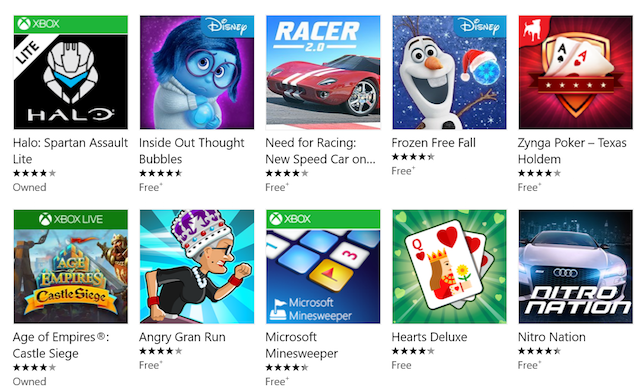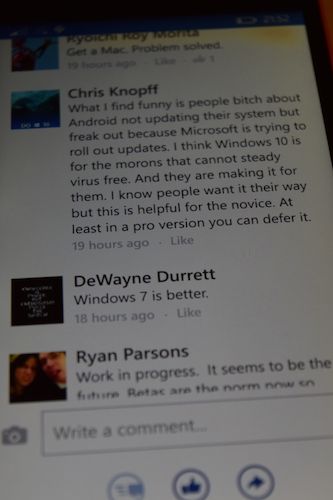The Windows 10 app store is notorious for underwhelming its users. It doesn't have that many apps. The few that are available tend to be of a poor quality. But under the surface lies an even bigger problem for users of the world's second most used operating system: Dead Apps.
These are Apps that have been discontinued by the developers, but haven't yet been removed from the store. They sit gathering dust, potentially opening their users to security risks, and continuing to the clutter that is the Windows App Store.
The Windows App Store, on both desktop and mobile, has a disproportionate amount of these dead applications. Here's how this is affecting users and what Microsoft can do about it.
The Beginnings of the Windows App Store
It's hard to believe, but at first, developers were optimistic about the Windows App Store. Excited, even.
Microsoft was late to the App Store game when they launched it in 2012. But they had the potential to use this to their advantage, and avoid the mistakes that were made by Apple and Google in the nascent stages of their respective app stores.
When you read developer forums, like Hacker News, you can tell there was a genuine feeling that Microsoft could pull this off. Microsoft was going to make it easy for them to sell apps to hundreds of millions of consumers, and they were going to make a lot of money.
Microsoft even offered developers 80% of sales, which is unthinkable when you consider the industry standard is around 70%.
To turbocharge developer interest in the Windows ecosystem even more, Microsoft radically changed the way Windows apps were built. They made it easy for coders to write an app once, and then run it across the entire Windows family of operating systems.
They started off with Windows Runtime (WinRT), which made meaningful baby steps towards cross-platform apps. This was the basis of Windows 8 and Windows 8.1 apps. With Windows 10, Microsoft took that even further with the Universal Windows Platform (UWP).
But along the line, things went a bit pear shaped, and developers started abandoning the store in droves. The reason why can be found in the execution.
Where the Windows App Store Went Wrong
The Windows App Store's biggest failing was that it couldn't change consumer behaviors. Users of Windows had thirty years of getting their software through physical media bought in a store, direct downloads from the Internet, and more recently, through intermediary services like Valve's Steam and Ninite.
For the Windows App Store to succeed, Microsoft would have to undo that. But they just weren't able to.
The large studios and professional developers were acutely aware that people weren't using it. Plus, Microsoft couldn't offer them the same level of promotion that Apple offers developers in its Mac Store. So, why would developers make the effort to distribute their software through it?
Then there was the problem that the Windows Store just wasn't all that good.
It could be charitably be described as a veritable cess-pit of poor quality software. The overwhelming majority of the games were of the rapacious, free-to-play sort; not triple-A titles.
The quality problem wasn't limited to games. Microsoft wasn't in the position that Apple was in, where low-quality applications were drowned out by apps that are well designed and built. The end result was that a deluge of poorly-written, poorly-designed apps flooded the market place, and ultimately gained prominence. Some of which were obvious scams.
As a result, developers were reluctant to put their software on it, lest they be judged by association.
It is for these reasons why a worrying trend has emerged, where developers are removing their software from the Windows (and Windows Phone) App Store.
They're within they rights, of course, as they're under no obligation to support a platform that is not economically viable. But an undesirable consequence of that is the proliferation of dead apps on Windows.
Windows App Store and Dead Apps
In my experience, dead applications are manifested in one of two ways.
There are those that have been abandoned, but remain available to download from the store. Although they haven't yet been deleted, the developers have no interest in maintaining them. They might work, but they might not. If a security or performance issue occurs, then... Well? Tough.
The Windows 10 App Store has a few examples of this. One is the American Airlines app, which was discontinued in 2015. The other is Hotel Tonight, which can be downloaded for Windows 10 and Windows Phone.
As a Windows Phone user, I noticed long ago that Hotel Tonight had lost feature parity with iOS and Android. But I only noticed that it was a dead app at the end of 2015, when I tried to redeem a promotional code on the desktop version of the app. I typed it in, but the app threw an error, and told me to download the latest update. But there weren't any updates to download.
I sent the makers a tweet. As Ryan Dube wrote a few months back, Twitter is a great place to get redress from companies that have let you down. Hotel Tonight messaged me back, and told me that they stopped supporting Windows, and to use their mobile website.
It's not an unfamiliar story. Countless apps have met a similar fate. And that's to say nothing about the apps which have been withdrawn and deleted entirely. Chase Bank, Bank of America, and Pinterest have all very publicly quit the Windows App Store.
The Walking Dead
In addition to dead apps, there are those that aren't quite dead, but aren't quite alive either. They're essentially moribund.
Developers will pay lip service to maintaining the app. They release token security updates and stability patches, but they aren't bothered about overall feature parity. Windows Phone is notorious for this, with lots of big-name applications on some form of life support.
The Twitter App lacks group direct messages, which we got in February 2015. The Facebook app does't support nested replies, which were introduced in March 2013. It's an embarrassment.
Why this Is Bad for Consumers
It goes without saying that Windows Phone customers have always had to put up with a substandard app store experience. That's a consequence of Windows Phone's constant third place position. But it's not much better on the desktop. Windows is literally bleeding apps.
The biggest losers will be those who prefer app-based experiences, over web based ones. Believe me, there are a lot of people who fall into this camp.
In my experience, these tend to be older computer users who are suspicious of what they see through their web browser, but feel much more comfortable with apps. These people won't have the same access to features, and ultimately will have less choice.
Dead apps also put a dent in Microsoft's tablet aspirations. Microsoft desperately wants to compete with Apple and Google in this sphere. The overarching design philosophy of Windows 10 was to create a compromise between the traditional keyboard and mouse inputs. It's for this reason why Windows 10 is so great in a two-in-one environment.
They won't be able to do that if there aren't any touch-oriented apps available, and many of the apps that have been discontinued were Modern UI (formerly Metro) apps, which work great on touch-enabled devices.
Why this Is Bad for Security
Of course, dead applications introduce an element of risk, as far as security is concerned. While Microsoft sandboxes all Windows App Store applications, and does a good job of analyzing them for malware, there's nothing they can to to prevent apps from running old, deprecated libraries.
If a banking app is discontinued, for example, and it turns out that the library they use to make encrypted connections has a severe security flaw that could make it possible for an attacker to intercept the traffic. This is one way in which a deprecated application could present a security risk.
App-Solutely Awful
Before anyone accuses me of an anti-Windows bias, it's worth emphasizing that Apple suffers from a similar problem. According to a 2014 study from analytics agency Adjust (formerly AdEven), around one in five iOS apps can be considered to be "dead".
No doubt that number has increased in the two years since that study was conducted. And I don't doubt that there's a similar number of dead applications on the Google Play store.
But that doesn't change the fact that the Windows Store is emphatically terrible.
Microsoft is trying to remedy that with Project Astoria and Project IslandWood. These two toolkits would allow developers to port their Android and iOS apps directly to Windows without having to rewrite them from scratch. If you've played Candy Crush Saga on Windows 10, you've already used an app ported with IslandWood.
Unfortunately, progress on these projects has been slow, and they're yet to be fully released to the public. Indeed, some in the technology press question whether Project Astoria will ever be released.
While Microsoft can rest on their laurels, the fact is that the the success of their app store is directly related to their long-term success, as was argued by Matt Weinberger from Business Insider.
How Microsoft Can Turn Things Around
I struggle to see how Windows 10 will be a success on the mobile and tablet stage, while its app store remains so dismally bad. The only way Microsoft can possibly turn things around is to start afresh.
Microsoft should close the app store as it is right now, and launch a new one with astronomically high standards of quality. All apps that are submitted should be manually scrutinized by a human, to ensure that nothing manages to get onto the store that shouldn't be there.
When an app is abandoned, Microsoft should immediately delete it, if it starts being a detriment to the app store, and to their customers. There should be no dead applications.
When an application starts to lag behind the versions released for other systems, Microsoft should ensure that the developer takes efforts to ensure that they have feature parity.
Microsoft should do more to attract quality developers, who will be able to support and maintain an application long-term. To do that, they should take a leaf out of RIM's (now called Blackberry) book.
Prior to the launch of Blackberry 10, they guaranteed anyone who released an app for Blackberry 10 would make at least $10,000. If they didn't get that, RIM would pay them personally. They even provided developers with free handsets.
If Microsoft did something similar, it would go a long way to building the type of digital marketplace that developers would be proud to have their apps on.
But what do you think? Are dead applications a problem for you? Do you think the Windows App Store can be saved? Let me know in the comments below.







